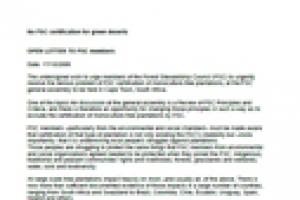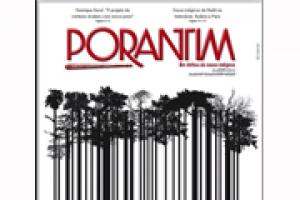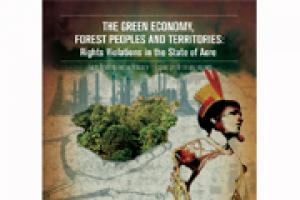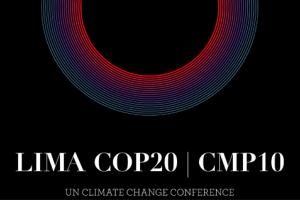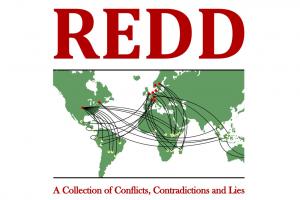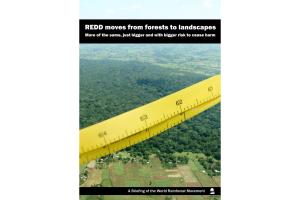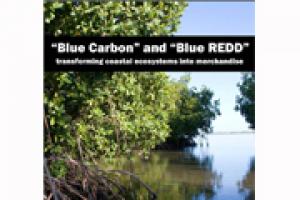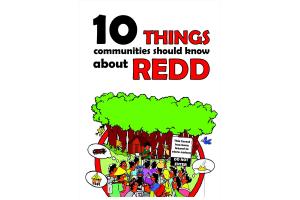Due to the UN climate negotiations -COP20- and the Peoples' Summit on Climate Change, held in Lima, Peru, in December 2014, over 100 organizations and social movements made a Call to Action to strongly and collectively reject REDD+ and the 'environmental services' - towards the COP21 in Paris, France, in December 2015.
COP20/CCC
The United Nations Framework Convention on Climate Change (UNFCCC) entered into force in 1994, aimed at reducing greenhouse gas concentrations in the atmosphere. The Conference of the Parties (COP) was designated as the supreme governing body of the Convention.
To date, 195 countries have submitted their instruments of ratification. These countries meet once a year, during two weeks, in order to evaluate the application of the Convention and develop the negotiation process between the Parties in front of new commitments.
Other information
9 December 2014
Our Bulletin Issue nº 208 of November 2014 is focused on the COP20 of the Convention of Climate Change.
Read the full bulletin here
Other information
8 December 2014
Only available in Portuguese.
A financeirização da natureza significa o aprofundamento radical do capitalismo e, ao mesmo tempo, configura-se como um neocolonialismo. Os povos indígenas e as comunidades tradicionais são os principais impactados por esta lógica perversa, que transforma a natureza em mercadoria e agrava ainda mais a desigualdade social.
Other information
8 December 2014
Fact-finding and advocacy mission preliminary report, by Cristiane Faustino y Fabrina Furtado
Download the preliminary report as pdf here
8 December 2014
The United Nations Framework Convention on Climate Change (UNFCCC) entered into force in 1994, aimed at reducing greenhouse gas concentrations in the atmosphere. The Conference of the Parties (COP) was designated as the supreme governing body of the Convention.
To date, 195 countries have submitted their instruments of ratification. These countries meet once a year, during two weeks, in order to evaluate the application of the Convention and develop the negotiation process between the Parties in front of new commitments.
Publications
3 December 2014
REDD: A Collection of Conflicts, Contradictions and Lies presents summaries of reports from 24 REDD projects or programmes with a common characteristic: they all show a number of structural characteristics that undermine forest peoples' rights, or fail to address deforestation. As offset projects, they all fail to address the climate crisis because by definition, offset projects do not reduce overall emissions: emission reductions claimed in one place justify extra emissions elsewhere.
Publications
27 September 2014
Text: Jutta Kill
Published in September 2014 (previously as an article of the monthly electronic bulletin of WRM of July 2014)
Also available in Indonesian
Publications
26 September 2014
Also available in Bahasa - Translated by KIARA
Text: Winfridus Overbeek
Photos: Redmanglar Internacional, Kiara, CPP, Canco
Published in September 2014 (previously as an article of the monthly electronic bulletin of WRM of July 2014)
Publications
11 January 2013
The main goal of this booklet is to inform communities about the serious problems that a REDD project can cause for the people involved.

